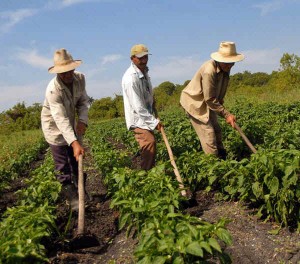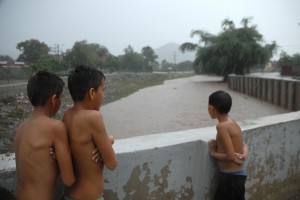 HAVANA, Cuba , September, www.cubanet.org – In Cuba there are 242 reservoirs, administered by the Institute of Hydraulic Resources (INRH). Together, these reservoirs can accumulate 9 billion cubic meters of water. Not to mention hundreds of small dams belonging to the Ministry of Agriculture and Sugar (AZCUBA), which have the capacity to store 500 million cubic meters.
HAVANA, Cuba , September, www.cubanet.org – In Cuba there are 242 reservoirs, administered by the Institute of Hydraulic Resources (INRH). Together, these reservoirs can accumulate 9 billion cubic meters of water. Not to mention hundreds of small dams belonging to the Ministry of Agriculture and Sugar (AZCUBA), which have the capacity to store 500 million cubic meters.
But of the total reservoirs, 106 are not used. Without having a convincing explanation for why, the INRH has assigned resources to undertake the required maintenance.
In these dams out of service today, serious problems have accumulated over the years, leading to the paralyzing of the diverters, the master channels, and the irrigation systems so needed for the crops.
The unjustified waste of water accumulated in reservoirs , throughout the whole country, and its negative effect on agriculture, highlights the fact that the Cuban government has to allocate 1.8 billion dollars for food imports, most of which could be produced in Cuba without any problem.
 The underutilized reservoirs are located in the provinces of Pinar del Rio, Artemisa, Cienfuegos, Villa Clara, Camagüey, Holguín, Las Tunas and the special municipality of Isla de la Juventud. In these territories, the use of reservoir water is down 75%. And in another 35 of these reservoirs water use is down 25%. However, in the territories mentioned, accumulate 566 million cubic meters of water with virtually no destination. These provinces, until recently, were noted for their high agricultural production.
The underutilized reservoirs are located in the provinces of Pinar del Rio, Artemisa, Cienfuegos, Villa Clara, Camagüey, Holguín, Las Tunas and the special municipality of Isla de la Juventud. In these territories, the use of reservoir water is down 75%. And in another 35 of these reservoirs water use is down 25%. However, in the territories mentioned, accumulate 566 million cubic meters of water with virtually no destination. These provinces, until recently, were noted for their high agricultural production.
To the problem of under-utilization of the accumulated water in the reservoirs, we must add 778 million cubic meters of water that could be used for fish farming.
The other issue for which INRH has no solution in the offing, is the leaks in the hundreds of miles of major canals and their connection and distribution networks. Due to the deterioration of age and lack of maintenance, millions of cubic meters of the precious liquid are lost every day.
Cuba has no major rivers. Their courses, generally from north to south, are short. The rainfall has become more erratic due to the greenhouse effect. Therefore, the filling of reservoirs and groundwater in recent years has not been as reliable as in the past.
The water problem in Cuba is potentially critical. According to the index of the potential availability of water per capita, the country ranks 105th out of 182 countries, with a range of consumption of 3,404 cubic meters of water per capita.
At present, the government talks a lot about the need to achieve food security as collateral for the material welfare of the population, but it is pure slogan and talk, without concrete results.
From Cubanet
6 September 2013
